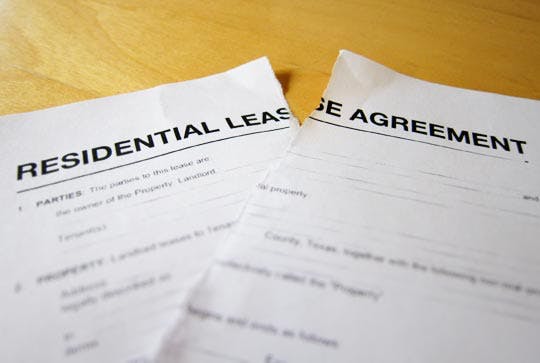
Photo: Apartment Therapy
Do you absolutely hate your apartment? Is the management of the building falling through on their promises? Maybe it’s time to contemplate breaking your lease…
What many people don’t realize is that a lease legally obligates you to cover the entire rental period that you agreed to in writing. So if you end your lease six months early, you may owe six times your monthly rent — or more if other fees are involved.
Breaking a lease is easy, but paying the steep penalties may not be. Here are a few ways to help you and your landlord navigate this process amicably.
Give advance notice
If you’re ready to go, the best way to do it is to give as much advance notice as you possibly can. If you’re not leaving early, but instead just no renewing your lease, remember you need to provide at least 30 day’s notice to the landlord before the contract ends. Check your lease to make sure, because it may require more notice (60 or 90 days).
Always give your notice to vacate in written form. Short-term rentals covered under a month-to-month rental agreement likely have different notice terms, which should be included in the contract.
Know the law
Local, state and federal laws protect both renters and landlords. These laws will vary based on where you live.
One prime example is that federal law protects individuals who enter active military service. Some states also require landlords to make reasonable efforts to find another renter for your unit, regardless of why you have to break the lease.
In these cases, you’ll want to consult an expert to determine your rights and responsibilities. Larger metropolitan areas often have tenants’ unions that can help renters navigate such disputes. These organizations can also help if your landlord doesn’t actively try to find a new renter, tries to charge you more money than what is legal or fails to answer your inquiries.
Be prepared to Pay
Check your lease to determine exactly what it will cost you. Likely, you’ll have to pay a steep fee and/or cover the monthly rental cost during your remaining agreement period. You probably won’t get your security deposit back either.
If you’re trying to avoid this, you can consult with your property manager to see if you can come up with a solution. Remember that breaking a lease creates a financial burden for both the renter and the landlord, so both parties have an interest in efficiently resolving things.
Document everything
Get every conversation about breaking your lease in writing. Email is the easiest way to document, but if you have face-to-face or phone interactions, take notes and email your landlord to confirm the details.
This may help avoid miscommunication between parties or bolster your case should the issue escalate.
Seek expert legal advice
Navigating federal, state and local laws can be challenging on your own. If you think you have a case and need advice, you may need to consult a legal expert who specializes in tenant rights.









